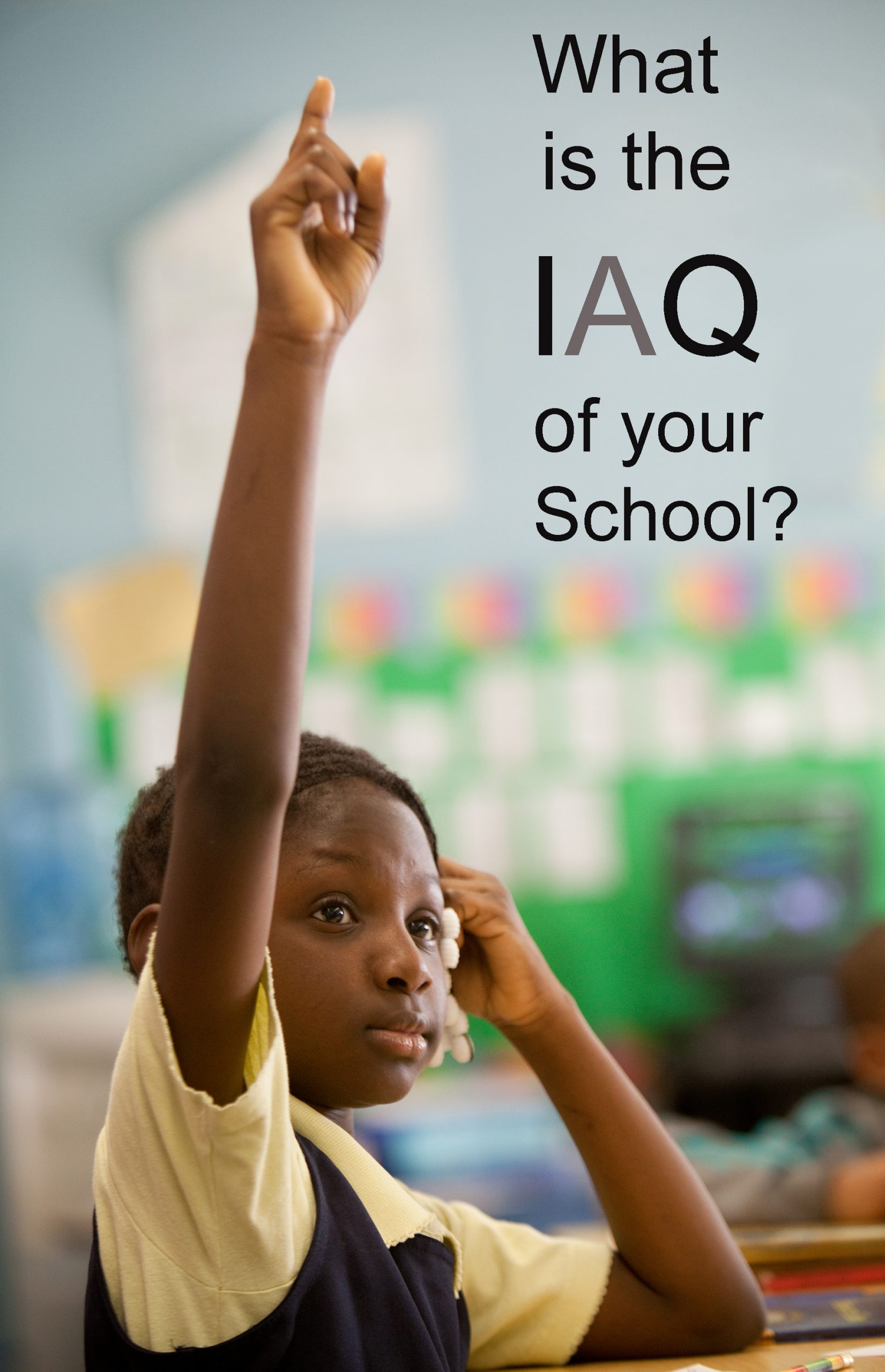


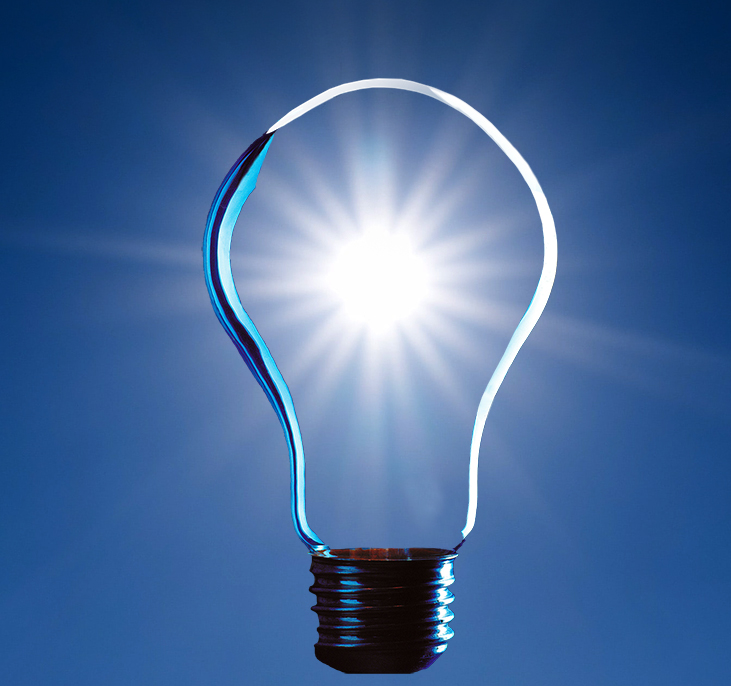
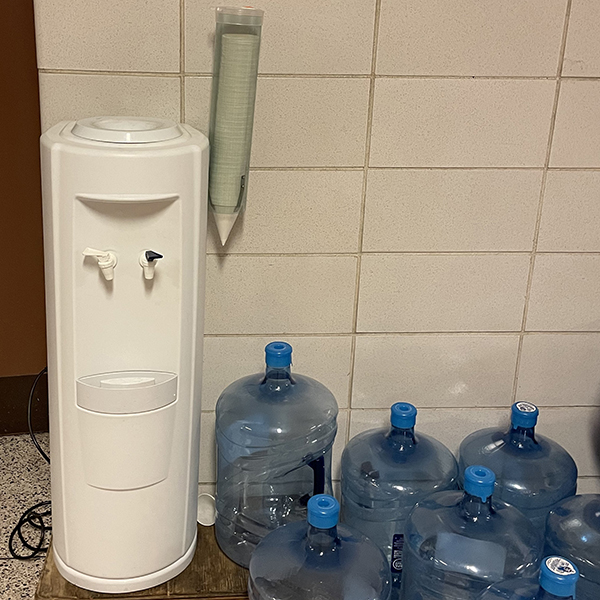
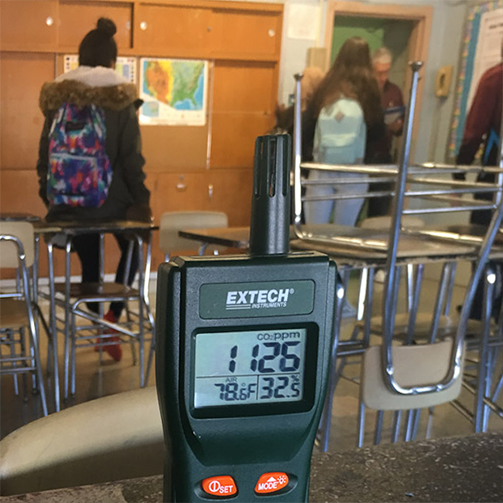
Students calculated LED lighting in hallways to save $13,000 in two years. This was a simple calculation of energy savings after subtracting the cost of materials and labor for the LED upgrade. These savings would be larger if maintenance savings and utility incentives were included in this calculation. If your students want to include incentives and maintenance savings, please contact shan@coolgreenschools.org to learn how to gather this information. Providing adminstrators with accurate information on potential savings and needed maintenance can help inform their decisions.
Water coolers often lacked water or were out of cups, reducing the amount of water students were drinking at school. Do your students want to document how often the coolers aren’t providing water to students and then find a way to ensure that students can get the water they need? There are two more water cooler research opportunities for students. First, they can swab the areas around the inside of the water dispensers (faucets) for bacteria. Second, they can research the direct and climate costs of the water coolers and whether there are alternatives (ie. reverse osmosis filtering systems) that could provide safe, clean and dependable water to students.
Our students monitor the air quality at their schools with hand-held instruments that provide point-in-time measurements and wall mounted sensors that collect and display air quality data over time. Using indoor and outdoor air monitors, students can see how outdoor air quality affect the air quality at their school and whether some schools need to improve their air filtering. With several schools participating in this project, students can also compare air quality in different communities and schools. What do they monitor? Co2, PM 2.5, PM 10, TVOC’s, radon, formaldehyde, temperature and humidity.
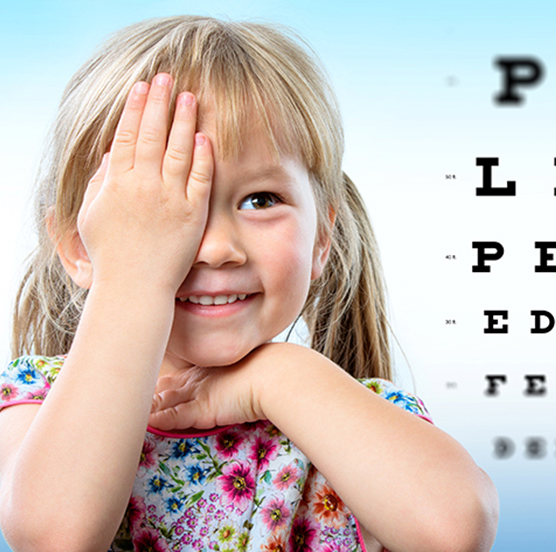

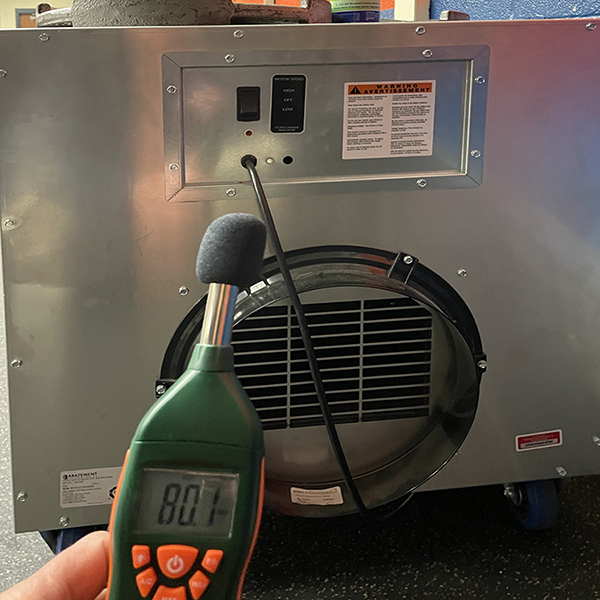
Schools do not offer vision testing for students during high school, so a quick eye chart enables students to discover whether they need vision correction. Several students discovered that they needed glasses through this short student-run exercise.
Is it the dark room? High Co2 levels? A job that goes late into the night? Homework that won’t quit? Boring teacher? Detached student? One student found a very high correlation between dim rooms and the number of sleeping students.
Our students found that air cleaners at their school are so loud (80-90 decibels) that they aren’t used. So, we helped the students build quiet, low-cost air cleaners that they could use at school or home. Potential research projects include testing the effectiveness of these air cleaners in cleaning air in the classroom or student homes, and whether students experience fewer school absences after the air cleaners are installed.
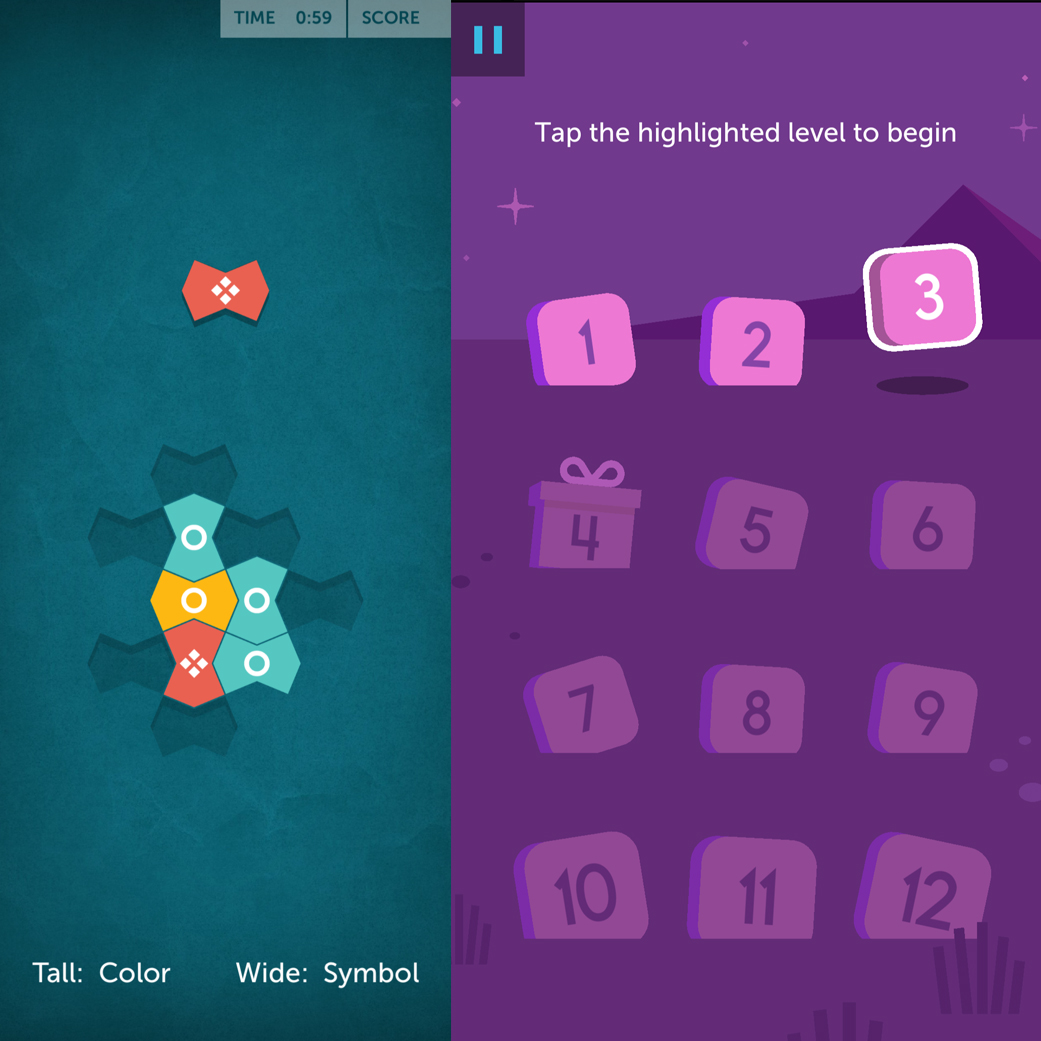
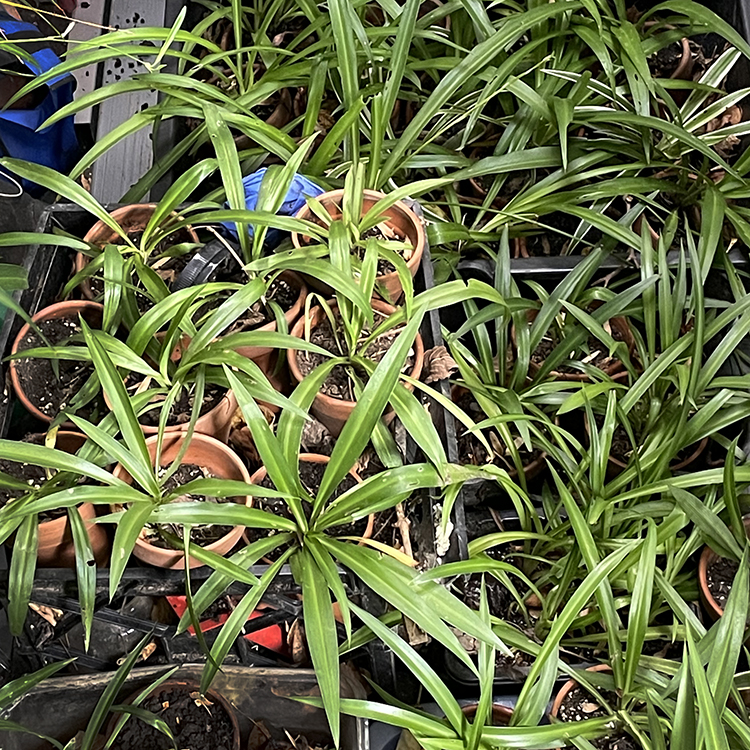
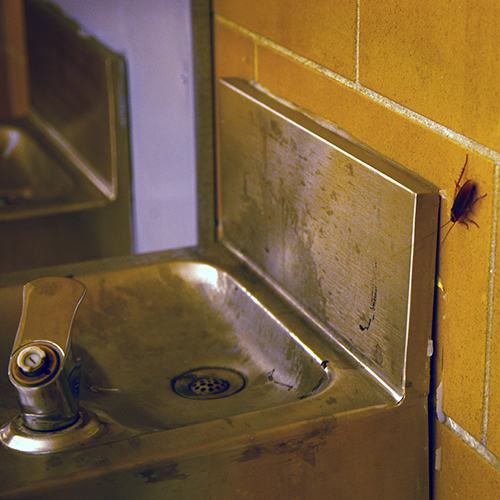
Students studied whether the amount of sleep affected their performance on cognitive tests. Students can research how sleep affects them and their school performance, and whether later school start times or reduced homework would help them succeed.
Students are testing whether plants in classrooms can improve student performance and mood. Will they find that better oxygen levels improve student cognition? Will they find that biophilia, affinity with nature, improves student test scores and mental health?
Students have identified and reduced asthma triggers at their schools including mice, cockroaches, air fresheners, and mold. With asthma the highest cause of medical-related absences, reducing asthma triggers at schools and at student homes has a potential for improving student health and school performance.
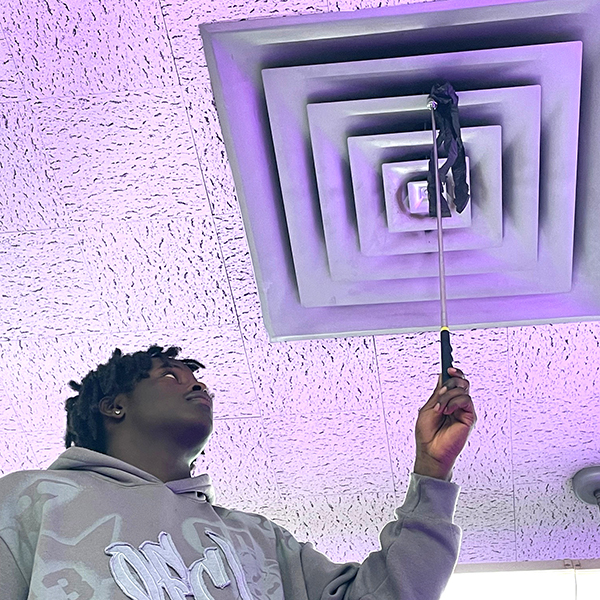
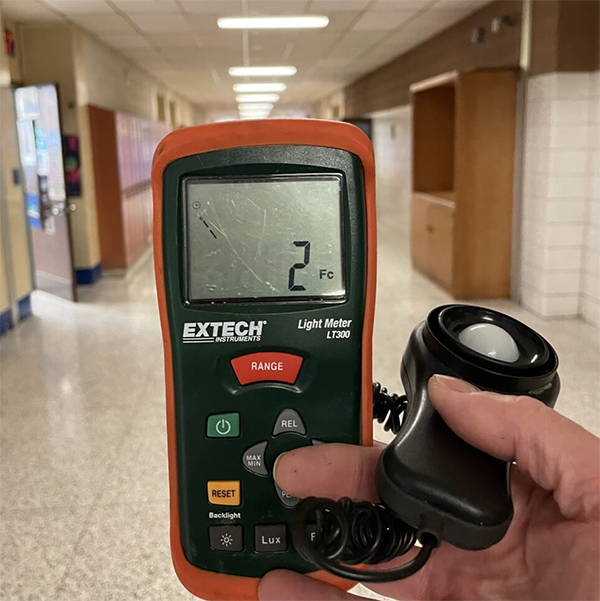
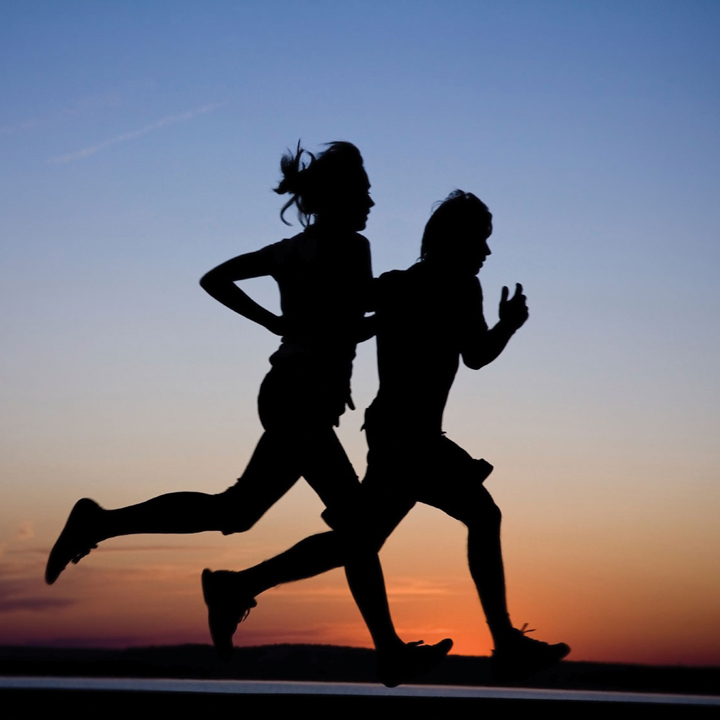
Students check the ventilation and air filtration of their classrooms and schools. They found some rooms with no working ventilation and air filters which have not been replaced in time. Studies show that increasing ventilation and filtration of classrooms has been shown to improve student learning and performance. Several student groups are designing their own studies to test this at their own schools.
Lighting has a strong influence over student performance. Our students have documented where lighting at their school is out, too dim, and energy inefficient. They provided recommendations and cost/savings analysis. Another student found a very high correlation between dim rooms and sleeping students. Your students might study whether student performance will be improved if curtains are raised in classrooms where they are normally pulled down.
Our students have studied how different amounts of exercise is correlated to mood and stress. Many of our students cite high levels of stress as a problem in their lives. What are the ways we can transform classrooms from the source of stress into catalysts for health, learning, and success? Students can study whether movement or mindful breaks during classes can improve their focus and learning, whether students learn and perform better under stress, and how students can learn more effectively and efficiently.
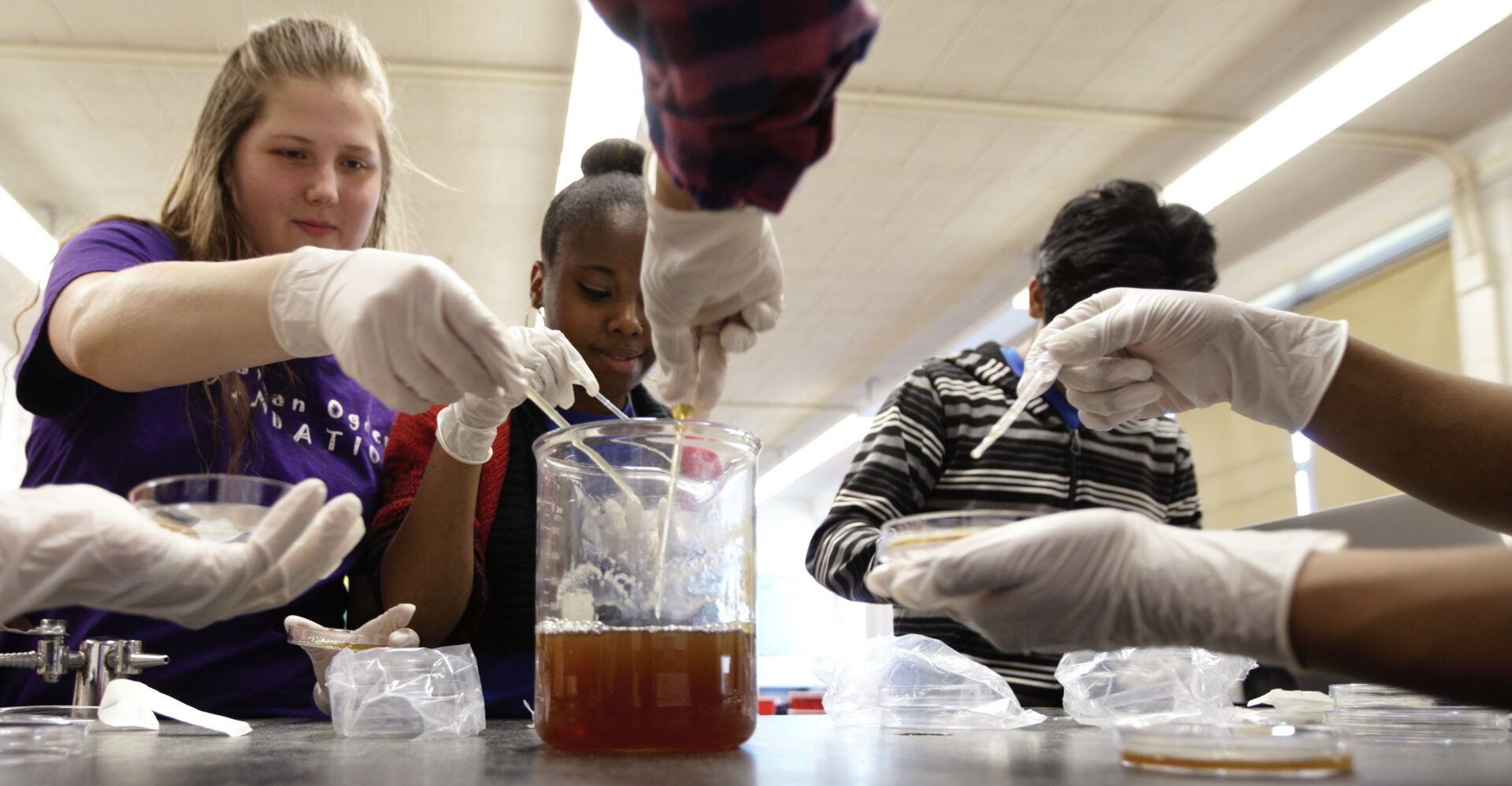
This project engages students in real world science and innovation. It is full of “Aha Moments” when students realize how their knowledge and skills can be used to improve their lives.

After protest chants of “I can’t breath!,” have faded from our streets, we can look at another important social and equity issue: Poor Indoor Air Quality (IAQ) affecting millions of students in our schools. For decades, schools–especially schools in low…
X
The experiment we are running in most science classes is whether students can learn science without doing science. And this experiment is failing our students. Yes, you can get students to memorize the periodic table and fill in the bubbles…
Cool Green Schools runs the Experiment You project to help students study and improve their health and learning. America has been running the Experiment US project since 1776, offering citizens the right to study their choices and choose a path…
Schools will improve when they meet the needs of their students.
How schools can improve the health of students and their communities The 2017 Neighborhood Health Report by the Baltimore City Health Department is hard to read. …
Students Test their Schools Students at Patterson High School and Baltimore Polytechnic Institute are about to get new science and environmental health laboratories: their schools. Johns Hopkins and Cool Green Schools are partnering on a community research grant to provide…
Stay in the loop with everything you need to know.

After protest chants of “I can’t breath!,” have faded from our streets, we can look at another important social and equity issue: Poor Indoor Air Quality (IAQ) affecting millions of students in our schools. For decades, schools–especially schools in low…
X
The experiment we are running in most science classes is whether students can learn science without doing science. And this experiment is failing our students. Yes, you can get students to memorize the periodic table and fill in the bubbles…
Cool Green Schools runs the Experiment You project to help students study and improve their health and learning. America has been running the Experiment US project since 1776, offering citizens the right to study their choices and choose a path…
Schools will improve when they meet the needs of their students.
How schools can improve the health of students and their communities The 2017 Neighborhood Health Report by the Baltimore City Health Department is hard to read. …
Students Test their Schools Students at Patterson High School and Baltimore Polytechnic Institute are about to get new science and environmental health laboratories: their schools. Johns Hopkins and Cool Green Schools are partnering on a community research grant to provide…
Stay in the loop with everything you need to know.

After protest chants of “I can’t breath!,” have faded from our streets, we can look at another important social and equity issue: Poor Indoor Air Quality (IAQ) affecting millions of students in our schools. For decades, schools–especially schools in low…
X
The experiment we are running in most science classes is whether students can learn science without doing science. And this experiment is failing our students. Yes, you can get students to memorize the periodic table and fill in the bubbles…
Cool Green Schools runs the Experiment You project to help students study and improve their health and learning. America has been running the Experiment US project since 1776, offering citizens the right to study their choices and choose a path…
Schools will improve when they meet the needs of their students.
How schools can improve the health of students and their communities The 2017 Neighborhood Health Report by the Baltimore City Health Department is hard to read. …
Students Test their Schools Students at Patterson High School and Baltimore Polytechnic Institute are about to get new science and environmental health laboratories: their schools. Johns Hopkins and Cool Green Schools are partnering on a community research grant to provide…
Stay in the loop with everything you need to know.

After protest chants of “I can’t breath!,” have faded from our streets, we can look at another important social and equity issue: Poor Indoor Air Quality (IAQ) affecting millions of students in our schools. For decades, schools–especially schools in low…
X
The experiment we are running in most science classes is whether students can learn science without doing science. And this experiment is failing our students. Yes, you can get students to memorize the periodic table and fill in the bubbles…
Cool Green Schools runs the Experiment You project to help students study and improve their health and learning. America has been running the Experiment US project since 1776, offering citizens the right to study their choices and choose a path…
Schools will improve when they meet the needs of their students.
How schools can improve the health of students and their communities The 2017 Neighborhood Health Report by the Baltimore City Health Department is hard to read. …
Students Test their Schools Students at Patterson High School and Baltimore Polytechnic Institute are about to get new science and environmental health laboratories: their schools. Johns Hopkins and Cool Green Schools are partnering on a community research grant to provide…
Stay in the loop with everything you need to know.

After protest chants of “I can’t breath!,” have faded from our streets, we can look at another important social and equity issue: Poor Indoor Air Quality (IAQ) affecting millions of students in our schools. For decades, schools–especially schools in low…
X
The experiment we are running in most science classes is whether students can learn science without doing science. And this experiment is failing our students. Yes, you can get students to memorize the periodic table and fill in the bubbles…
Cool Green Schools runs the Experiment You project to help students study and improve their health and learning. America has been running the Experiment US project since 1776, offering citizens the right to study their choices and choose a path…
Schools will improve when they meet the needs of their students.
How schools can improve the health of students and their communities The 2017 Neighborhood Health Report by the Baltimore City Health Department is hard to read. …
Students Test their Schools Students at Patterson High School and Baltimore Polytechnic Institute are about to get new science and environmental health laboratories: their schools. Johns Hopkins and Cool Green Schools are partnering on a community research grant to provide…
Stay in the loop with everything you need to know.

After protest chants of “I can’t breath!,” have faded from our streets, we can look at another important social and equity issue: Poor Indoor Air Quality (IAQ) affecting millions of students in our schools. For decades, schools–especially schools in low…
X
The experiment we are running in most science classes is whether students can learn science without doing science. And this experiment is failing our students. Yes, you can get students to memorize the periodic table and fill in the bubbles…
Cool Green Schools runs the Experiment You project to help students study and improve their health and learning. America has been running the Experiment US project since 1776, offering citizens the right to study their choices and choose a path…
Schools will improve when they meet the needs of their students.
How schools can improve the health of students and their communities The 2017 Neighborhood Health Report by the Baltimore City Health Department is hard to read. …
Students Test their Schools Students at Patterson High School and Baltimore Polytechnic Institute are about to get new science and environmental health laboratories: their schools. Johns Hopkins and Cool Green Schools are partnering on a community research grant to provide…
Stay in the loop with everything you need to know.

After protest chants of “I can’t breath!,” have faded from our streets, we can look at another important social and equity issue: Poor Indoor Air Quality (IAQ) affecting millions of students in our schools. For decades, schools–especially schools in low…
X
The experiment we are running in most science classes is whether students can learn science without doing science. And this experiment is failing our students. Yes, you can get students to memorize the periodic table and fill in the bubbles…
Cool Green Schools runs the Experiment You project to help students study and improve their health and learning. America has been running the Experiment US project since 1776, offering citizens the right to study their choices and choose a path…
Schools will improve when they meet the needs of their students.
How schools can improve the health of students and their communities The 2017 Neighborhood Health Report by the Baltimore City Health Department is hard to read. …
Students Test their Schools Students at Patterson High School and Baltimore Polytechnic Institute are about to get new science and environmental health laboratories: their schools. Johns Hopkins and Cool Green Schools are partnering on a community research grant to provide…
Stay in the loop with everything you need to know.

After protest chants of “I can’t breath!,” have faded from our streets, we can look at another important social and equity issue: Poor Indoor Air Quality (IAQ) affecting millions of students in our schools. For decades, schools–especially schools in low…
X
The experiment we are running in most science classes is whether students can learn science without doing science. And this experiment is failing our students. Yes, you can get students to memorize the periodic table and fill in the bubbles…
Cool Green Schools runs the Experiment You project to help students study and improve their health and learning. America has been running the Experiment US project since 1776, offering citizens the right to study their choices and choose a path…
Schools will improve when they meet the needs of their students.
How schools can improve the health of students and their communities The 2017 Neighborhood Health Report by the Baltimore City Health Department is hard to read. …
Students Test their Schools Students at Patterson High School and Baltimore Polytechnic Institute are about to get new science and environmental health laboratories: their schools. Johns Hopkins and Cool Green Schools are partnering on a community research grant to provide…
Stay in the loop with everything you need to know.

After protest chants of “I can’t breath!,” have faded from our streets, we can look at another important social and equity issue: Poor Indoor Air Quality (IAQ) affecting millions of students in our schools. For decades, schools–especially schools in low…
X
The experiment we are running in most science classes is whether students can learn science without doing science. And this experiment is failing our students. Yes, you can get students to memorize the periodic table and fill in the bubbles…
Cool Green Schools runs the Experiment You project to help students study and improve their health and learning. America has been running the Experiment US project since 1776, offering citizens the right to study their choices and choose a path…
Schools will improve when they meet the needs of their students.
How schools can improve the health of students and their communities The 2017 Neighborhood Health Report by the Baltimore City Health Department is hard to read. …
Students Test their Schools Students at Patterson High School and Baltimore Polytechnic Institute are about to get new science and environmental health laboratories: their schools. Johns Hopkins and Cool Green Schools are partnering on a community research grant to provide…
Stay in the loop with everything you need to know.

After protest chants of “I can’t breath!,” have faded from our streets, we can look at another important social and equity issue: Poor Indoor Air Quality (IAQ) affecting millions of students in our schools. For decades, schools–especially schools in low…
X
The experiment we are running in most science classes is whether students can learn science without doing science. And this experiment is failing our students. Yes, you can get students to memorize the periodic table and fill in the bubbles…
Cool Green Schools runs the Experiment You project to help students study and improve their health and learning. America has been running the Experiment US project since 1776, offering citizens the right to study their choices and choose a path…
Schools will improve when they meet the needs of their students.
How schools can improve the health of students and their communities The 2017 Neighborhood Health Report by the Baltimore City Health Department is hard to read. …
Students Test their Schools Students at Patterson High School and Baltimore Polytechnic Institute are about to get new science and environmental health laboratories: their schools. Johns Hopkins and Cool Green Schools are partnering on a community research grant to provide…
Stay in the loop with everything you need to know.

After protest chants of “I can’t breath!,” have faded from our streets, we can look at another important social and equity issue: Poor Indoor Air Quality (IAQ) affecting millions of students in our schools. For decades, schools–especially schools in low…
X
The experiment we are running in most science classes is whether students can learn science without doing science. And this experiment is failing our students. Yes, you can get students to memorize the periodic table and fill in the bubbles…
Cool Green Schools runs the Experiment You project to help students study and improve their health and learning. America has been running the Experiment US project since 1776, offering citizens the right to study their choices and choose a path…
Schools will improve when they meet the needs of their students.
How schools can improve the health of students and their communities The 2017 Neighborhood Health Report by the Baltimore City Health Department is hard to read. …
Students Test their Schools Students at Patterson High School and Baltimore Polytechnic Institute are about to get new science and environmental health laboratories: their schools. Johns Hopkins and Cool Green Schools are partnering on a community research grant to provide…
Stay in the loop with everything you need to know.

After protest chants of “I can’t breath!,” have faded from our streets, we can look at another important social and equity issue: Poor Indoor Air Quality (IAQ) affecting millions of students in our schools. For decades, schools–especially schools in low…
X
The experiment we are running in most science classes is whether students can learn science without doing science. And this experiment is failing our students. Yes, you can get students to memorize the periodic table and fill in the bubbles…
Cool Green Schools runs the Experiment You project to help students study and improve their health and learning. America has been running the Experiment US project since 1776, offering citizens the right to study their choices and choose a path…
Schools will improve when they meet the needs of their students.
How schools can improve the health of students and their communities The 2017 Neighborhood Health Report by the Baltimore City Health Department is hard to read. …
Students Test their Schools Students at Patterson High School and Baltimore Polytechnic Institute are about to get new science and environmental health laboratories: their schools. Johns Hopkins and Cool Green Schools are partnering on a community research grant to provide…
Stay in the loop with everything you need to know.

After protest chants of “I can’t breath!,” have faded from our streets, we can look at another important social and equity issue: Poor Indoor Air Quality (IAQ) affecting millions of students in our schools. For decades, schools–especially schools in low…
X
The experiment we are running in most science classes is whether students can learn science without doing science. And this experiment is failing our students. Yes, you can get students to memorize the periodic table and fill in the bubbles…
Cool Green Schools runs the Experiment You project to help students study and improve their health and learning. America has been running the Experiment US project since 1776, offering citizens the right to study their choices and choose a path…
Schools will improve when they meet the needs of their students.
How schools can improve the health of students and their communities The 2017 Neighborhood Health Report by the Baltimore City Health Department is hard to read. …
Students Test their Schools Students at Patterson High School and Baltimore Polytechnic Institute are about to get new science and environmental health laboratories: their schools. Johns Hopkins and Cool Green Schools are partnering on a community research grant to provide…
Stay in the loop with everything you need to know.